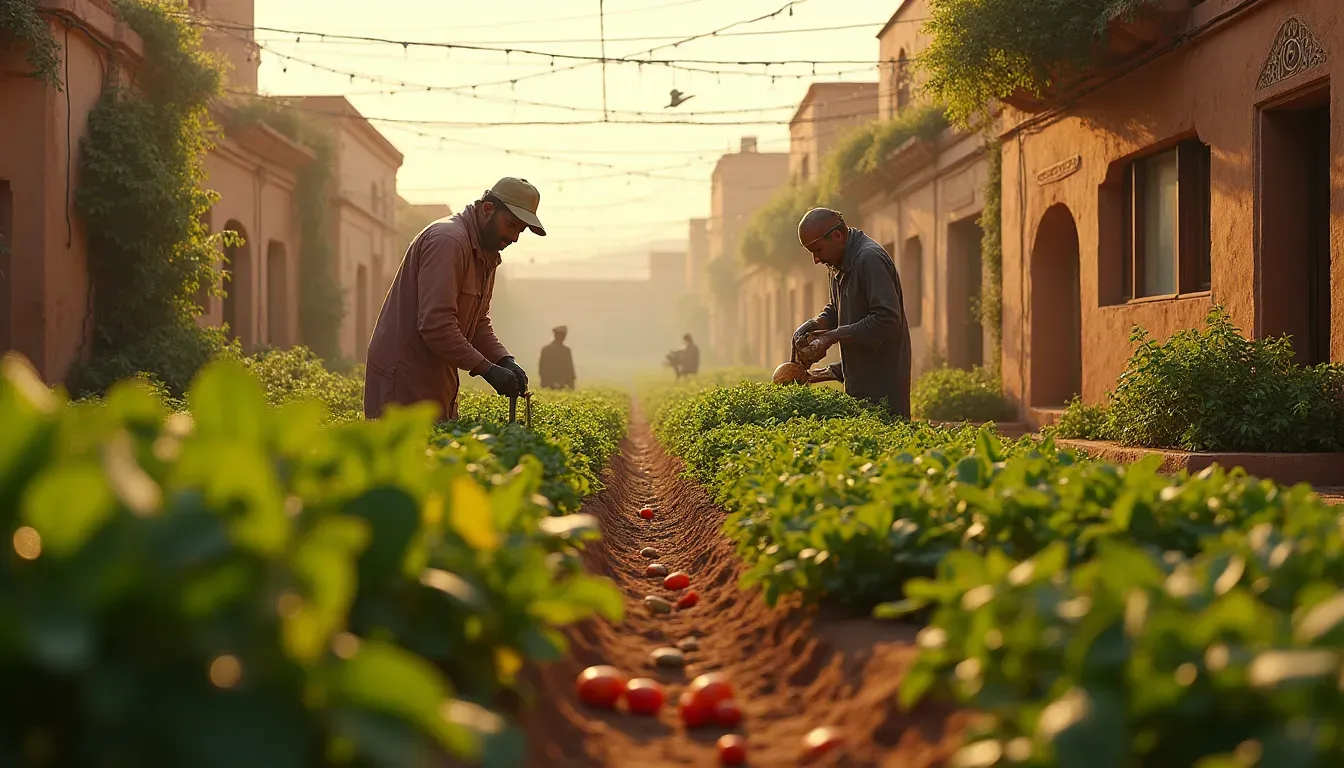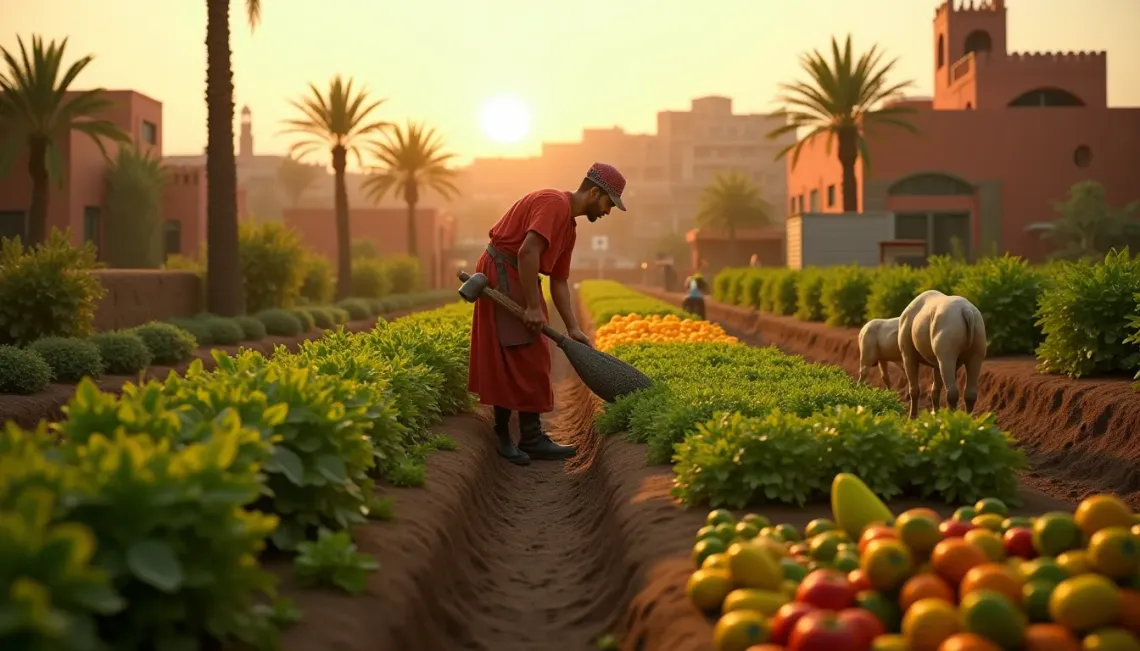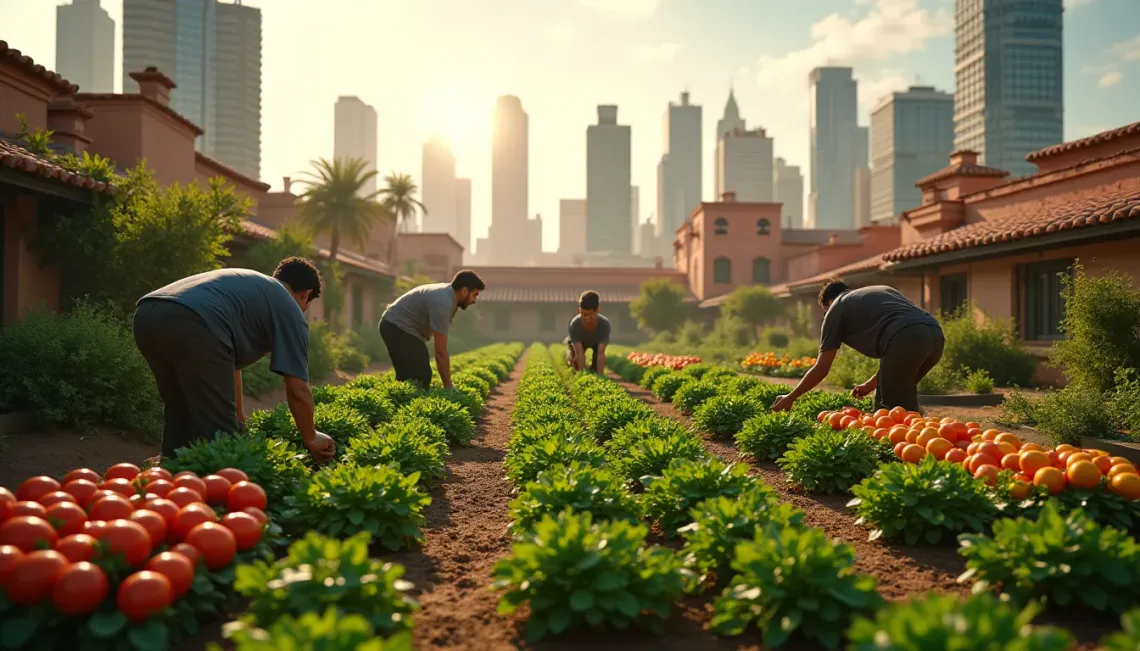In recent years, urban farming has emerged as a critical method for enhancing food security in Morocco. As urban areas grow more populous, sustainable agriculture practices become essential to meet the nutritional needs of residents. This article explores various urban farming techniques that contribute to cultivating food security across Morocco's cities.
Understanding Urban Farming in Morocco
Urban farming refers to the practice of cultivating, processing, and distributing food in or around urban areas. In Morocco, this practice is gaining traction due to its multiple benefits, including increasing food security and reducing dependency on food imports. By implementing sustainable agriculture methods, urban centers can produce fresh and healthy food locally.
Sustainable Agriculture: The Heart of Urban Farming
Sustainable agriculture is crucial for the success of urban farming projects. It focuses on creating food systems that are environmentally regenerative, socially supportive, and economically viable. Techniques such as permaculture, aquaponics, and vertical farming are increasingly utilized in Moroccan cities to maximize production and minimize environmental impact.
Key Urban Farming Techniques Boosting Food Security
Several innovative techniques are being adopted in Morocco to enhance urban agriculture:
- Hydroponics: This soil-less farming method allows crops to grow in nutrient-rich water solutions. It is particularly beneficial in areas with limited space, offering an efficient use of resources.
- Rooftop Gardens: Utilizing the available roof space in urban buildings, these gardens contribute to urban greening and reduce the heat island effect, while providing fresh produce.
- Community Gardens: These gardens foster community engagement and education, while also increasing access to fresh fruits and vegetables.
The Role of Technology in Urban Farming
Modern technology is an integral component of urban farming initiatives in Morocco. Innovations such as automated irrigation systems and data-driven farm management software ensure efficient resource use and optimize yields. Furthermore, digital platforms enable easy access to agricultural knowledge and collaboration among local farmers.
Benefits of Urban Farming for Morocco's Food Security
Urban farming significantly impacts food security in Morocco by:
- Reducing food miles and transportation costs
- Enhancing local food sovereignty
- Providing employment opportunities in urban areas
Moreover, urban agriculture enriches biodiversity within city environments and contributes to climate resilience, aligning closely with Morocco’s national strategies for sustainable development.
Interconnected Topics in Urban Agriculture
Urban farming in Morocco resonates with broader discussions about climate change adaptation and sustainable living in city spaces. Delving into related subjects such as permaculture practices and renewable energy in agriculture can provide further insights into creating resilient urban food systems.
As urban farming continues to evolve, it holds immense potential for bolstering food security in Morocco, promoting healthier lifestyles and a more sustainable future. By integrating comprehensive sustainable agriculture techniques, Moroccan cities can serve as models for urban resilience worldwide.




